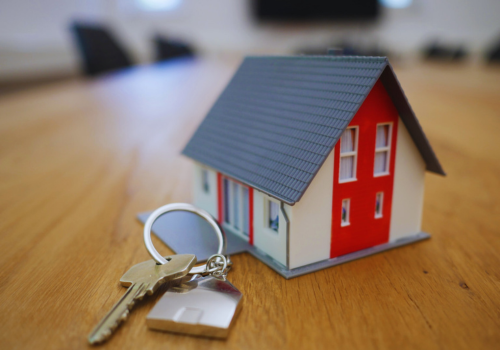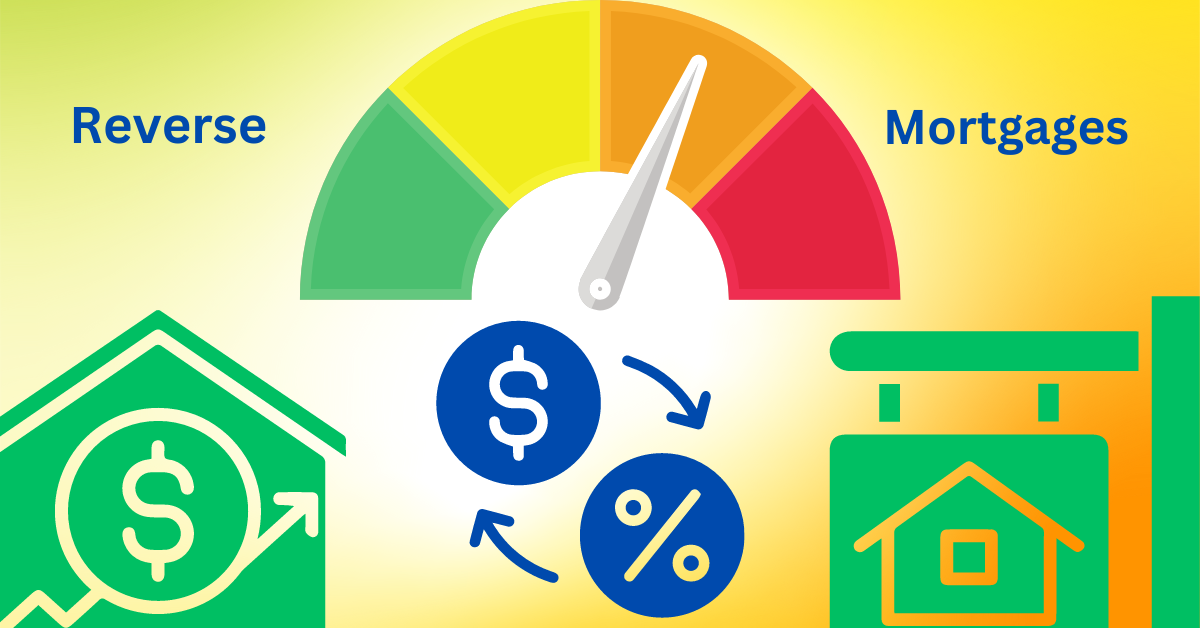Reverse Mortgages Demystified : What You Need to Know in 8 Minutes
If you’re a homeowner over the age of 62 and want to access the equity in your home without selling it, a reverse mortgage may be an option to consider. With the rising cost of healthcare and the increasing longevity of retirees, many seniors are looking for ways to supplement their retirement income. A reverse mortgage allows homeowners to borrow against the equity in their home, providing additional income in retirement. In this article, we’ll explore the ins and outs of reverse mortgages, including eligibility requirements, borrowing limits, repayment and costs, and the pros and cons. By understanding all of the factors, you can make an informed decision about whether a reverse mortgage is right for you.
How Reverse Mortgages Work ?
A reverse mortgage is a type of loan that allows homeowners to borrow against the equity in their home. Unlike a regular mortgage, the borrower does not make monthly payments to the lender. Instead, the lender makes payments to the borrower, either in a lump sum, monthly payments, or a line of credit. The loan does not have to be repaid until the borrower moves out of the home or passes away.
- Comparison with a regular mortgage
When compared to a regular mortgage, a reverse mortgage is the opposite. Instead of paying down the loan over time and building equity in the home, the borrower is taking out equity and reducing the equity in the home. However, a reverse mortgage can be a good option for some homeowners who want to access their home equity without selling their home.

- How to apply for a reverse mortgage
To apply for a reverse mortgage, the borrower must meet certain eligibility requirements, such as being at least 62 years old and owning their home outright or having a low mortgage balance. The borrower must also attend counseling to ensure they understand the terms of the loan.
- Types of reverse mortgage loans (government-backed vs. private)
There are two types of reverse mortgage loans: government-backed and private. The Home Equity Conversion Mortgage (HECM) is a government-backed loan that is insured by the Federal Housing Administration (FHA). Private reverse mortgages, also known as proprietary reverse mortgages, are not backed by the government and may have different terms and requirements.
By understanding the different types of reverse mortgages and the application process, you can determine whether a reverse mortgage is the right choice for your financial situation.
RELATED TOPICS : Boosting Your Airbnb Listing
Eligibility Requirements
To be eligible for a reverse mortgage, the borrower must meet certain requirements. The primary residence requirement means that the home must be the borrower’s primary residence, where they live for at least six months out of the year.
In addition to the primary residence requirement, the borrower must also own the property outright or have a low mortgage balance. The amount of equity in the home will also impact the amount that can be borrowed through a reverse mortgage.
- Property ownership and equity requirements
Not all properties are eligible for a reverse mortgage. Eligible properties include single-family homes, multi-family homes up to four units, and some condominiums and manufactured homes. Properties that are not eligible include co-ops and most mobile homes.
Other requirements for a reverse mortgage include paying property taxes, homeowners insurance, and any other applicable fees. The borrower must also attend counseling to ensure they understand the terms of the loan and are able to make an informed decision.
By understanding the eligibility requirements for a reverse mortgage, you can determine whether you qualify for this type of loan and whether it is a good option for your financial situation.
Borrowing Limits
The amount that a borrower can receive from a reverse mortgage depends on several factors, including the borrower’s age, the value of the home, and the interest rate. Generally, the older you are and the more equity you have in your home, the more you can borrow.
Factors that affect borrowing limits include the borrower’s age, credit score, and the interest rate on the loan. Older borrowers may be able to borrow more than younger borrowers, as they have less time to live in the home and the loan will be outstanding for a shorter period of time. A higher credit score may also result in a higher borrowing limit, as it demonstrates the borrower’s ability to repay the loan. Finally, the interest rate on the loan will impact the amount that can be borrowed, as a higher interest rate will result in less money available for the borrower.
- Limitations of government-backed reverse mortgages
Government-backed reverse mortgages, such as the HECM, have limitations on how much you can borrow. The amount is based on the age of the youngest borrower, the value of the home, and the current interest rate. The maximum loan amount for the HECM in 2021 is $822,375.
- Proprietary reverse mortgages and their risks
Proprietary reverse mortgages, which are not backed by the government, may have higher borrowing limits than government-backed loans, but also come with higher costs and risks. These loans are typically offered by private lenders and have fewer restrictions than government-backed loans. However, they may have higher interest rates and fees, and the borrower may be required to have a higher credit score or more equity in their home to qualify.
It’s important to carefully consider the borrowing limits and associated costs of both government-backed and proprietary reverse mortgages before making a decision about which type of loan is right for you. By understanding the factors that affect borrowing limits and the associated risks and benefits, you can make an informed decision about whether a reverse mortgage is the right choice for your financial situation.
Pros and Cons of Reverse Mortgages
Reverse mortgages can be a useful tool for homeowners who want to access their home equity without selling their home. However, like any financial product, there are both advantages and disadvantages to consider before making a decision.
Advantages of reverse mortgages (access to home equity, no monthly payments, etc.)
Advantages of reverse mortgages include access to home equity without having to sell the home, no monthly payments required, and the ability to use the money for any purpose. This can be especially beneficial for seniors who need additional income in retirement or want to pay off debts.
Disadvantages of reverse mortgages (accrued interest, reduced equity, etc.)
Disadvantages of reverse mortgages include accrued interest on the loan, which can reduce the equity in the home over time, and reduced equity for heirs. Additionally, reverse mortgages typically have higher fees and interest rates than traditional mortgages, which can add up over time.
Considerations for making a decision about a reverse mortgage
When considering a reverse mortgage, there are several factors to take into account. First, it’s important to understand how a reverse mortgage will impact your overall financial situation, including the costs associated with the loan and the impact on your home equity. You should also consider your long-term goals, such as whether you plan to stay in your home for the rest of your life or whether you want to leave your home to your heirs.
Another consideration is whether a reverse mortgage is the best option for your specific financial needs. Depending on your situation, there may be other alternatives to consider, such as downsizing to a smaller home or taking out a traditional mortgage.
Overall, reverse mortgages can be a helpful option for homeowners who want to access their home equity without selling their home, but it’s important to carefully consider the advantages and disadvantages before making a decision. By understanding the potential costs and impact on your overall financial situation, you can make an informed decision about whether a reverse mortgage is the right choice for you.
Conclusion
In summary, a reverse mortgage is a type of loan that allows homeowners over the age of 62 to access the equity in their home without having to sell their home. Instead of making monthly payments to the lender, the lender makes payments to the borrower. The loan does not have to be repaid until the borrower moves out of the home or passes away.
To qualify for a reverse mortgage, the borrower must meet certain eligibility requirements, such as being at least 62 years old, owning their home outright or having a low mortgage balance, and living in the home for at least six months out of the year. They must also pay property taxes, insurance, and other applicable fees.
Borrowing limits for a reverse mortgage depend on factors such as the borrower’s age, credit score, and the interest rate. There are two types of reverse mortgage loans: government-backed and private. While government-backed loans have limitations on how much you can borrow, proprietary reverse mortgages may have higher borrowing limits but come with higher costs and risks.
When deciding whether a reverse mortgage is right for you, it’s important to carefully consider the advantages and disadvantages. While a reverse mortgage can provide access to home equity without having to sell your home and no monthly payments are required, there are also disadvantages such as accrued interest and reduced equity. You should also consider other factors such as your long-term goals and whether there are other alternatives to consider.
In conclusion, a reverse mortgage can be a useful tool for homeowners over the age of 62 who want to access their home equity without selling their home. By understanding the eligibility requirements, borrowing limits, repayment and costs, and the pros and cons, you can make an informed decision about whether a reverse mortgage is right for your financial situation. As with any financial product, it’s important to do your research and consult with a financial advisor before making a decision.
#reversemortgagealternatives #governmentbackedreversemortgages #proprietaryreversemortgages #reversemortgageeligibility #reversemortgagecosts #financialplanning #seniorcitizens #homeownership #financialproducts #mortgageoptions #retirementincome #reducingequity #homeequityconversionmortgage #HECM #financialadvisor #longtermgoals #propertytaxes #homeownersinsurance
I (Susanna) was inspired to start “Best Way to Make Money Online” by my passion for entrepreneurship and my desire to provide practical advice and strategies for individuals seeking financial success in the digital realm. I believe in the power of collaboration and sharing ideas, emphasizing the importance of knowing one’s purpose beyond just profit. My background in language learning and online education has equipped me with the skills and knowledge to create a platform that empowers others to navigate the online landscape effectively and achieve their financial goals.

